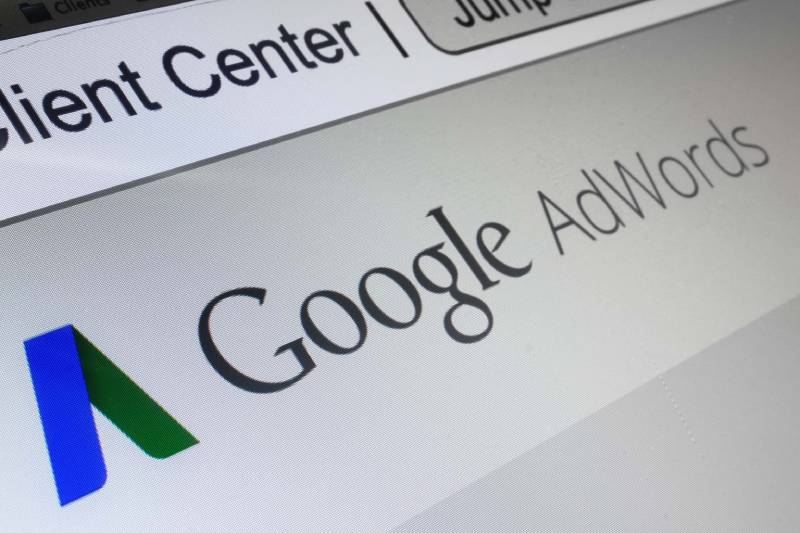Do you want to advertise on Google?
It’s a deceptively simple question. On the one hand, who wouldn’t? On the other hand, how to go about it?
Google Ads, until recently known as Google AdWords, is Google’s advertising platform. Since Google processes 3.8 billion searches per day, Google Ads is a popular advertising platform, to say the least.
This means that if you are considering a Google Ads campaign, you will need to have a sense of how the platform works and how you can best use it.
The Google Ads Platform
The Google Ads platform works like this: you, the person with the Google Ads campaign, place a bid on the keywords of your choice. Any time someone searches for those keywords, an algorithm chooses between the bids based on three things:
- The amount of the bid,
- The Quality Score, and
- Your landing page.
The bid part is obvious: Google wants your money, so a higher bid will generally mean better results.
But it’s also about quality: a Quality Score is what Google uses to evaluate the quality and the relevance of your advertisement for the keyword in question. Finally, Google wants optimized landing pages.
The good news is that you can be sure that you will only pay for results. The model is a pay-per-click (PPC) model, so you are only paying when people click on your ads.The question, then, is how you should go about choosing the right keywords to drive clicks. Let’s turn to that question, starting with one of the greatest pitfalls associated with the platform.
Tip 1) Beware of Overly Broad Keywords
Google cares about relevancy, and so do users. People who search for keywords have specific ends and purposes in mind.
This has contributed to one of the biggest common mistakes using Google Ads: choosing .
The key here is to figure out, during keyword research, which keywords are too broad. In many cases, you will want to avoid these overly broad keywords by combining two or three keywords, producing keyword combinations that will be a far better match for your campaign. Over time, you will be able to track the performance of your keywords, and that means you will know which ones are doing well and which ones are doing poorly.
Tip 2) Remove Underperforming Keywords
If a keyword or keyword combination is underperforming, remove it. An underperforming keyword is a waste of your money, even if it is not very expensive.
This is an important part of optimizing your campaign. As you find keywords that are underperforming, you can eliminate them and try new ones to replace them.
For that matter, take the time and effort to find negative keywords and add them to your list of keywords not to use. This will potentially help you steer your campaign away from whole clusters of terms that will be less than optimal for your purposes and harm your ROI.
Tip 3) Make Your Ads Relevant
Another factor to consider here is the intent of your searchers. What are they intending to do once they have queried your terms? If you fail to understand this and instead show them an ad that is irrelevant to what they are after, you will receive fewer clicks as a result.
We’ve already discussed part of the solution to this problem in terms of optimizing your keywords. However, there is also the question of your headline and your ad copy matching the keywords, and the question of , whether it speaks to the specific problem people are having when they search for the keywords in question.
One way you can figure this out is to write multiple ads for your campaign, and test which ones work the best.
Relevant advertisements will help you not only in convincing customers to click but also in convincing Google that you have high-quality content.
Tip 4) Good Landing Pages
Once a customer clicks on your ad, where do they go? The answer to this question is highly important, not least because it too will affect how well Google scores your campaign.
If a customer is taken to a landing page that does not have the same keywords, meaning it has not been optimized for conversions, they will be less likely to want to stick around. At the same time, the presence or absence of the relevant keywords on your landing page is another thing Google looks at to determine your Quality Score.
Once a user is on your landing page, they should find the information they need to solve whatever problem brought them to you in the first place. Again, this too is part of what Google looks at to determine how high you should rank, which will have a strong effect on your ROI.
Tip 5) Boost Your Quality Score
Google wants to show viewers high-quality content as well as paid content, and as we have seen already there are some important steps you need to take to boost your Quality Score.
Google uses several factors to determine your Quality Score. First, Google looks at the keywords and compare them with your advertisements. Second, there’s the Click Through Rate (CTR), which tells Google’s algorithms how popular your ads are with people who search for your chosen keywords.
These two factors take some time and effort to address, but they are very manageable if you plan your keywords well, do your due diligence in research, and optimize over time.
As we’ve seen, Google also looks at the text in your ads and the quality of your landing pages. There’s also the question of user experience: a site that is optimized for mobile and presents a smooth user experience will do better in Google’s eyes than one that presents problems.
These factors too are quite manageable. They will take some effort to get right up front, but over time they can be managed and maintained quite readily for a sound ROI.
Finally, there’s performance over time. Poor performance over time will affect the Quality Score, but this can be overcome with sustained effort and optimization. And, too, the good news is that Google rewards good performance with a higher Quality Score, which in turn helps to drive better performance.
Conclusion
If you are considering a Google Ads campaign, the best ways to maximize your ROI all have to do with creating good content, choosing good keywords, offering sound solutions, and providing a good user experience. These things take time and effort, but if done right they can translate to remarkable success.
A Google Ads campaign is a large, multi-faceted project, but if handled well it can yield a tremendous ROI. If you’re ready to take that step, please contact The Legal Marketing Company for a free consultation.












